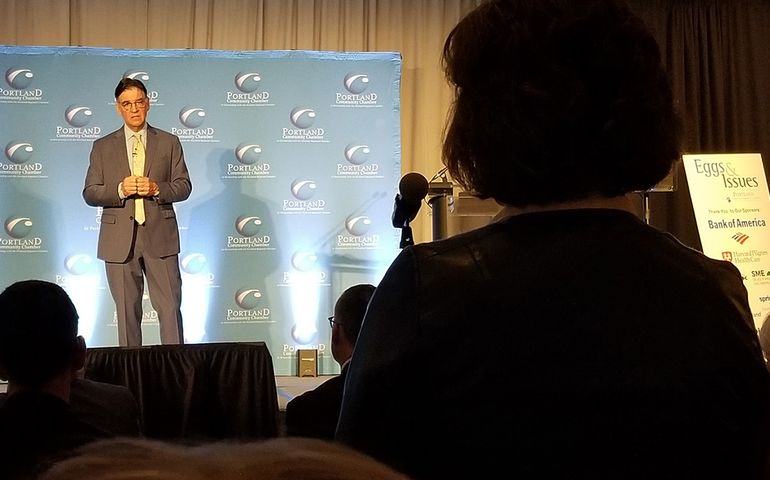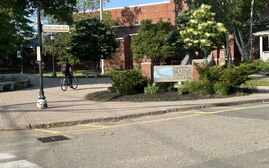More funds needed to train more Mainers, says college system prez
 Courtesy / Maine Community College System
Maine Community College System President David Daigler answers a question from an audience member during the Portland Regional Chamber of Commerce’s Eggs & Issues event focusing on workforce solutions.
Courtesy / Maine Community College System
Maine Community College System President David Daigler answers a question from an audience member during the Portland Regional Chamber of Commerce’s Eggs & Issues event focusing on workforce solutions.
Maine's seven community colleges are steadily increasing job training opportunities across the state. But additional funding is needed to train more people, according to the head of the Maine Community College System leader.
“Maine’s community colleges are working to give people the 21st-century skills they need,” MCCS President David Daigler said in a news release after presenting his observations this week at an event hosted by the Portland Regional Chamber of Commerce.
Daigler said that in the last two years, money from the state Legislature, bonds, grants, gifts and strategic reserves have been used to buy new equipment and expand programs. Short-term training has grown, and there are new offerings in manufacturing, plumbing and heating, healthcare, hospitality and tourism management, sustainable construction and residential and commercial electricity.
New equipment includes nursing simulation centers, life-size virtual anatomy tables, an esports gaming arena and vehicles for the commercial driving license programs.
But additional funding is needed to meet the high demand from both businesses seeking skilled workers and trainees looking to gain or improve their job skills, Daigler said.
The training is funded by the MCCS Maine Quality Centers program, which partners with employers to provide customized training that is free to trainees.
“Two years ago, we trained just under 1,000 employees” through MQC programs," Daigler said. “This year, in the first six months, we’ve committed to train 2,000. We are well on track to train 4,000 by the end of this fiscal year, but for one small problem: We don’t have funding to support that level of training.”
The state’s strategic economic development plan, released by the state Department of Community and Economic Development last month, calls for adding 75,000 people to Maine’s workforce over the next 10 years, he noted.
“The truth is, Maine needs new investment across its entire educational portfolio, but right now our most critical need is in the short-term training programs,” Daigler said.












0 Comments